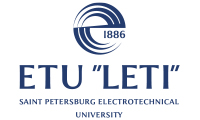Personalized medicine is the future that we partially have right now. However, it cannot exist without state-of-the-art equipment. Saint Petersburg Electrotechnical University “LETI” – one of the leading Russian universities of technology – has developed algorithms and technology that allow to approach health care and health protection in a modern way.
What does P4 Medicine entail? It is a new healthcare model that focuses on a personalized approach to treating patients. Its motto is that medicine has to be Predictive (predict the risk factors), Preventive, Participatory (the patient is an equal participant in his or her treatment) and Personalized (a disease prevention and treatment plan that accounts for each patient’s condition individually). Modern life (primarily longer lifespan and the need to prolong active longevity) dictates that medical devices are essential in both hospitals and people’s homes. For this reason, ETU “LETI” researchers are proposing to add a fifth P and for P5 Medicine. Medicine has to be portable. To implement this motto, ETU “LETI” has picked an R&D area Mobile Medical Systems that groups together various fields. It also a research and education priority of the university.
“Let me explain how remote health monitoring works. A patient owns a portable device with sensors that records biomedical signals. The data goes to either a smart phone, or a special remote unit that assesses diagnostically relevant health indicators. After that, the data goes to the hospital server and reaches the doctor. Now, the doctor both checks on the patient and analyzes the changes in data”, as explained by Anna Glazova, head of this R&D area, Associate Professor at the Department of Bioengineering Systems.
ETU “LETI” has had some success stories when it comes to this research area. The university has collaborated with various medical institutions and enterprises, Almazov National Medical Research Centre among others, and came up with a miniature programmable system Cardioscreen. It is revolutionary when it comes to identifying ischemia reliably with patient undergoing strenuous physical activity. Moreover, a doctor understands what is wrong with a patient based upon the monitoring data and is able to change the treatment plan accordingly. Thus, the patient is always in touch with the doctor. Such a device is a good fit for patients with cardiovascular disease and for people who experience strenuous physical activity as part of their job such as athletes, pilots and astronauts.
One more timely development by ETU “LETI” researchers is the Monitoring Systems for Patients with Gestational Diabetes intended for pregnant women. It was tested by the Endocrinology Institute of the Almazov National Medical Research Centre and it received a grant from the Russian Science Foundation. This disorder is very treacherous and can be dangerous for a woman and her future child. Through remote monitoring, the doctor can control the woman's diet, the amount of medication taken and the blood sugar levels. In the near future, the system will help predict the blood sugar levels based on the food intake (the pregnant woman will just input the information about her food intake in her smartphone).
The other invention takes on patients with obstructive pulmonary disease and asthma. Spirometry is a 'golden standard’ for assessing patients' general wellbeing. However, to perform it at home, one has to have expensive equipment. “Our method helps patients asses what is going on with their bronchovascular system having only a microphone (even one in their smartphone will do) and a special app”, according to Anna Glazova. The device readings help monitor the situation, take timely measures and prevent exacerbation. The university is working on this project jointly with V.I.Il`ichev Pacific Oceanological Institute.
A student team led by a young researcher, Associate Professor at the Department of Bioengineering Systems Aleksey Anisimov is currently developing a project called CardioTrainer. What separates it from other devices is that the cardio trainer a la ETU “LETI” both helps diagnose a case and improves the patient's condition. The patient sees the heart rate at the display screen, can adjust it by breathing in a certain way and thus achieves a normal heart rate. The adaptive biological feedback system determines what exercises the patient needs to do based on the specific physiological parameters. Saint Petersburg Institute for Experimental Medicine already uses such devices for in-patients. Now by popular demand the university has started working on an out-patient version.
The Government of Saint Petersburg shares this interest to personalized medicine. Representatives from ETU “LETI” were included in the working group that tackles Medicine, Biology, Pharmacology, and Production of Drugs and Medical Instruments as part of the Strategy for Science, Technology and Innovation Development in Saint Petersburg.





